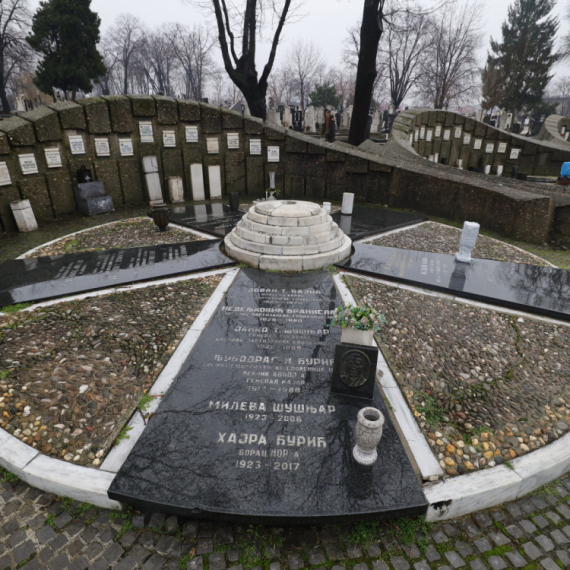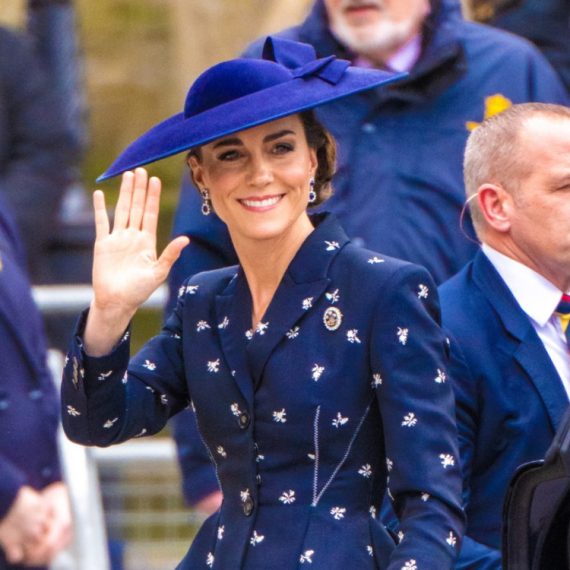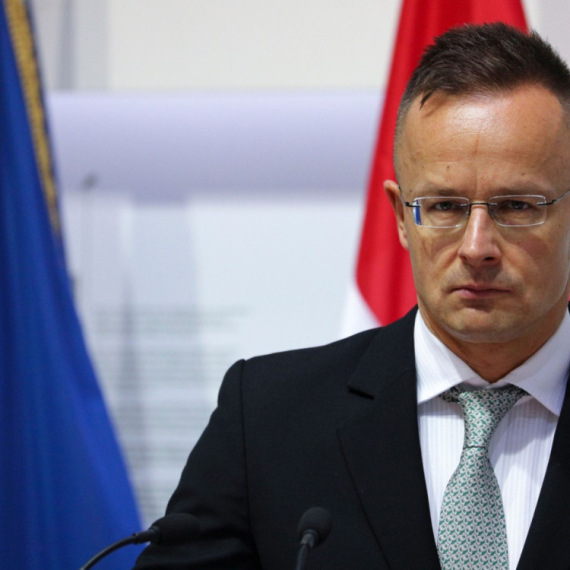"More officials to leave as URS exits cabinet"
The URS party's exit from the government is not merely a matter of replacing three ministers, but also its officials in ministries and state administration.
Friday, 02.08.2013.
12:53

BELGRADE The URS party's exit from the government is not merely a matter of replacing three ministers, but also its officials in ministries and state administration. This has been confirmed by Thursday's resignation of Head of the EU Integration Office Milan Pajevic, Tanjug is reporting. "More officials to leave as URS exits cabinet" After the two strongest parties in the ruling coalition, the Socialist Party of Serbia (SPS) and the Serbian Progressive Party (SNS), decided in the ongoing government reshuffle to continue on without the URS, Pajevic handed in the resignation as he had taken the office upon the recommendation of the United Regions of Serbia (URS). Pajevic, together with Minister of Finance and Economy Mladjan Dinkic, Minister of Regional Development Verica Kalanovic, and Deputy Prime Minister for EU Integration Suzana Grubjesic, is among the first officials whose departure is certain two days after the prime minister's decision to oust the URS from the government. URS Spokesman Marko Selakovic told Tanjug on Thursday that all seven state secretaries from the URS will leave the executive branch, adding that the party did not have any assistant minister. The list of state secretaries appointed upon the recommendation of the URS includes: three state secretaries at the Ministry of Finance and Economy, and one in each the Health, Regional Development, Agriculture, and Interior Affairs ministries. Selakovic said that state secretaries are political figures, just like ministers, as they are appointed by the government, contrary to assistant ministers who are usually experts, and not political figures. “That is the case in all ministries. There are more than 20 assistants in total, and neither of them is from the URS,” Selakovic said. When a government is being formed, parties can also appoint ministerial advisors from outside party ranks. This is the case, for example, with Dinkic's finance advisor Milica Bisic. On the other hand, the advisor at the office of the deputy prime minister for European integration is former URS MP Zeljko Ivanji. Zoran Stankovic, chairman of the Coordination Body for Presevo, Bujanovac and Medvedja, was also proposed by the URS. The parties in the ruling coalition also decided who will run public companies. The URS appointed the directors of public company Skijalista Srbije, joint-stock company Aerodrom Nikola Tesla, and Komercijalna Banka. Nemanja Nenadic, program director at NGO Transparency Serbia, told Tanjug that a party's exit from the ruling coalition should not lead to the dismissal of the officials appointed by the party. "Even if someone was initially chosen for a position without a public competition, they should not be dismissed in the same way - a competition should be announced first and things should be set right," Nenadic told Tanjug. Under the law, since the start of 2011 all holders of high-level offices in the state administration - including assistant ministers, secretaries, and heads of special organizations and government offices - must be chosen through a competition. But the previous government did not respect these regulations, and the current one has followed in their footsteps, concluded Nenadic. (Wikipedia, file) Tanjug
"More officials to leave as URS exits cabinet"
After the two strongest parties in the ruling coalition, the Socialist Party of Serbia (SPS) and the Serbian Progressive Party (SNS), decided in the ongoing government reshuffle to continue on without the URS, Pajević handed in the resignation as he had taken the office upon the recommendation of the United Regions of Serbia (URS).Pajević, together with Minister of Finance and Economy Mlađan Dinkić, Minister of Regional Development Verica Kalanović, and Deputy Prime Minister for EU Integration Suzana Grubješić, is among the first officials whose departure is certain two days after the prime minister's decision to oust the URS from the government.
URS Spokesman Marko Selaković told Tanjug on Thursday that all seven state secretaries from the URS will leave the executive branch, adding that the party did not have any assistant minister.
The list of state secretaries appointed upon the recommendation of the URS includes: three state secretaries at the Ministry of Finance and Economy, and one in each the Health, Regional Development, Agriculture, and Interior Affairs ministries.
Selaković said that state secretaries are political figures, just like ministers, as they are appointed by the government, contrary to assistant ministers who are usually experts, and not political figures.
“That is the case in all ministries. There are more than 20 assistants in total, and neither of them is from the URS,” Selaković said.
When a government is being formed, parties can also appoint ministerial advisors from outside party ranks.
This is the case, for example, with Dinkić's finance advisor Milica Bisić.
On the other hand, the advisor at the office of the deputy prime minister for European integration is former URS MP Željko Ivanji.
Zoran Stanković, chairman of the Coordination Body for Preševo, Bujanovac and Medveđa, was also proposed by the URS.
The parties in the ruling coalition also decided who will run public companies.
The URS appointed the directors of public company Skijališta Srbije, joint-stock company Aerodrom Nikola Tesla, and Komercijalna Banka.
Nemanja Nenadić, program director at NGO Transparency Serbia, told Tanjug that a party's exit from the ruling coalition should not lead to the dismissal of the officials appointed by the party.
"Even if someone was initially chosen for a position without a public competition, they should not be dismissed in the same way - a competition should be announced first and things should be set right," Nenadić told Tanjug.
Under the law, since the start of 2011 all holders of high-level offices in the state administration - including assistant ministers, secretaries, and heads of special organizations and government offices - must be chosen through a competition.
But the previous government did not respect these regulations, and the current one has followed in their footsteps, concluded Nenadić.




























Komentari 0